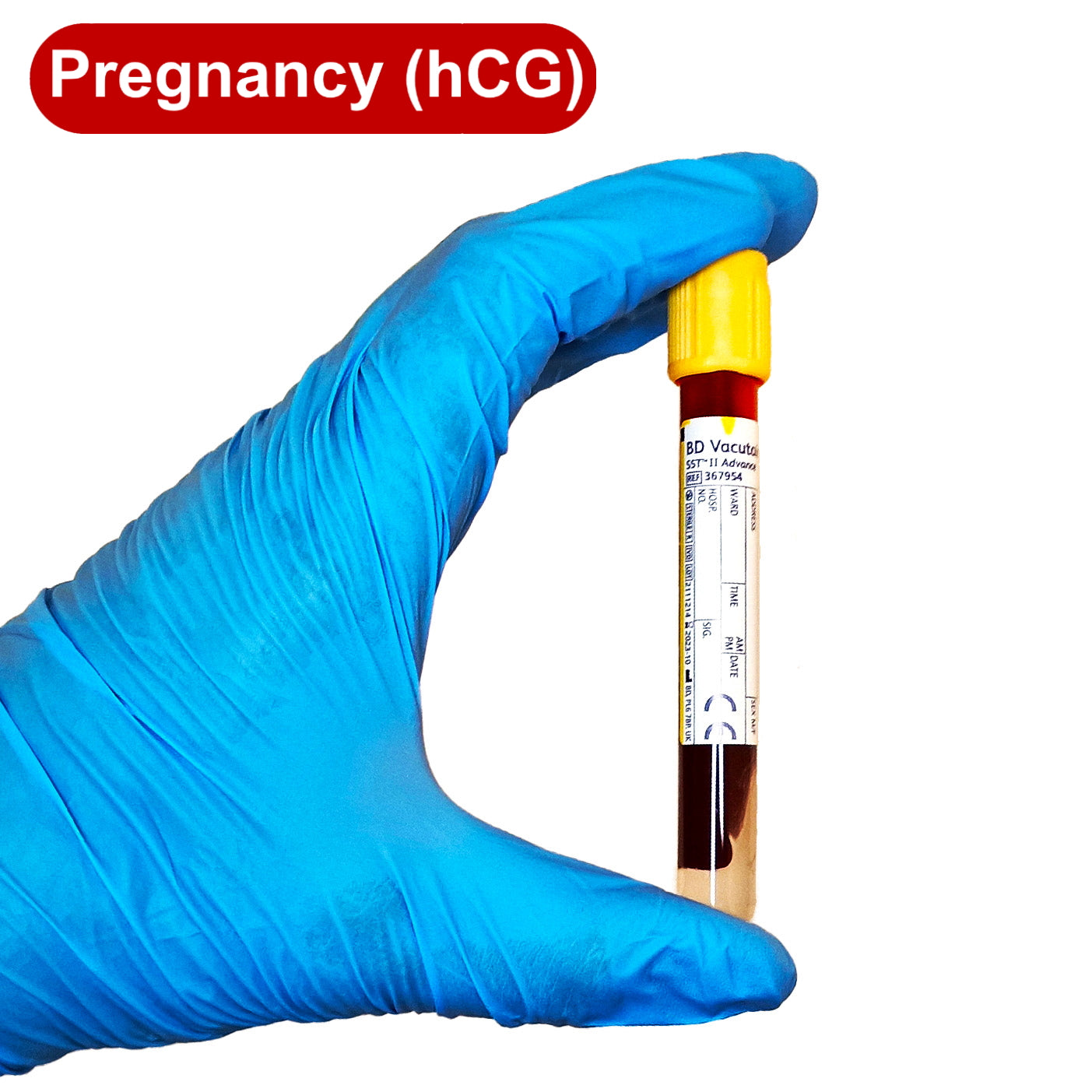The Ultimate Guide to Understanding Pregnancy Tests
Finding out she might be pregnant is a big moment in a woman's life. She might feel excited, nervous, or eager to know for sure. While there are many ways to test for pregnancy, this article will talk about the different types and highlight how accurate blood tests are.
Types of Pregnancy Tests:
Urine Pregnancy Tests:
Urine pregnancy tests are the most common and can easily be performed at home. Pregnancy test kit use involves peeing on a stick or immersing the pregnancy test strip into the urine. These tests detect the presence of the hormone human chorionic gonadotropin (hCG), produced by the placenta after a fertilised egg attaches to the uterus's lining.
Though convenient, the accuracy of urine tests can be affected by various factors including the timing of the test, concentration of urine, and even the quality of the test kit. Therefore, a negative test doesn't always mean you're not pregnant. The pregnancy test faint line doesn't help either making interpreting result tricky. That's why urine pregnancy tests are often sold in packs of 2 or 3 so that women can repeat them to make sure. Even so, urine pregnancy tests are more than suitable for most purposes. When is the best time to take a pregnancy test? For most pregnancy urine test kits, that's after having a missed period.
Blood Pregnancy Tests:
Blood tests, which test for beta-hCG, are not as commonly used as their urine counterparts due to the need for a clinic visit. However, they offer superior accuracy and provide additional information about the pregnancy. These tests not only confirm pregnancy but can also give insights into the health and progression of the pregnancy.
Blood vs. Urine Test:
-
Urine Pregnancy Test Accuracy: Though convenient, factors like the concentration of the urine, the time of the day, and even the pregnancy strip test after how many days of suspected conception can affect accuracy.
-
Pregnancy Blood Test: More accurate than urine tests, they can detect pregnancy even before a missed period. Pregnancy blood test levels offer insights into the progression of the pregnancy. However, the pregnancy blood test cost might be higher than urine tests.
The Superiority of Blood Pregnancy Tests:
Blood pregnancy tests measure the exact amount of beta-hCG in the bloodstream, offering a precise and reliable confirmation of pregnancy. They can detect pregnancy earlier than urine tests, often as early as six to eight days post-ovulation. The two types of blood pregnancy tests include:
-
Qualitative hCG test: Determines the presence or absence of hCG in the blood, much like a urine test but with enhanced accuracy.
-
Quantitative hCG test (or beta hCG): Measures the specific level of hCG in the blood, offering insights into the age of the pregnancy and potential for multiple pregnancies, and can aid in monitoring the pregnancy’s progression. You can order this type of early pregnancy test online here at STtest.London.
Uses of Pregnancy Blood Tests (Beta-hCG):
Beta-hCG tests are not only fundamental in confirming pregnancy but are instrumental in various health scenarios. These include:
-
Early Detection: Blood tests can detect hCG levels even before they're high enough to be caught by urine tests. This means potential pregnancies can be identified sooner, allowing for early intervention and care.
-
Quantitative Insights: Unlike most urine tests that provide a simple positive or negative result, blood tests quantify the exact level of hCG. This specific measurement can be crucial for doctors to monitor the progress of the pregnancy and the effectiveness of the fertility treatment.
-
Monitoring Treatment Efficacy: In fertility treatments such as IVF or IUI, tracking the rise and fall of hCG levels can provide insights into the success of the procedure. It can also help in adjusting dosages or treatment methods if required.
-
Detecting Ectopic Pregnancies: Elevated hCG levels combined with other symptoms can hint at an ectopic pregnancy. Early detection via blood tests can save lives, as untreated ectopic pregnancies can be life-threatening.
-
Predicting Multiple Pregnancies: Extremely high hCG levels can sometimes indicate multiple pregnancies, like twins or triplets. This information can be vital for planning prenatal care.
-
Reduced Uncertainty: Unlike urine tests, which may sometimes display faint lines leading to confusion, blood tests offer clear, numerical results, reducing uncertainty and anxiety.
-
Consistency and Reliability: Blood tests for hCG are consistent and are less influenced by factors that can affect urine tests, such as the dilution of urine or the time of day.
In the context of fertility treatments, where every detail and day counts, the precision, reliability, and comprehensive insights offered by blood tests make them an indispensable tool. They not only confirm pregnancies but also offer a wealth of information that can guide clinical decisions, ensuring the best possible care for the hopeful mother and the developing foetus.
Check your gestation and due date using this easy-to-use calculator.
Summary:
While urine pregnancy tests offer convenience and privacy, blood pregnancy tests stand out for their superior accuracy, early detection, and ability to provide invaluable information about the pregnancy’s health and progression. Especially in scenarios where precision and detailed insights are paramount, opting for a blood pregnancy test, including beta-hCG, ensures that prospective mothers and their healthcare providers are equipped with the crucial information needed to embark on the beautiful journey of motherhood, well-informed and reassured.






